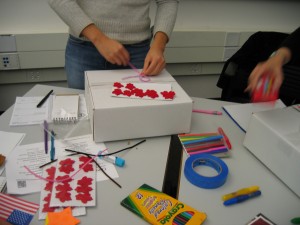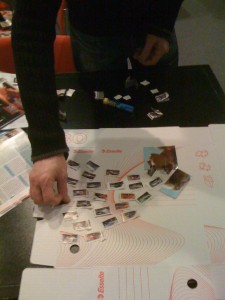Fri 15 Mar 2013
Focus Groups Can Be Fun & Useful
Posted by NancyF under Design Games, Innovation Games®, Presentation, User & Customer Research, User Experience
[2] Comments
This is part 2 of my argument that focus groups with fun activities can and do yield useful results.
We consider the case of civic engagement: City of San Jose uses Budget Games to get residents to give feedback on annual budget proposals. Negotiations with play money about real proposals gets genuine feedback from 150 people during a single Saturday morning. Budget Games, organized by Every Voice Engaged and Innovation Games®, in conjunction with the City of San Jose’s staff, aided by volunteer facilitators and observers, have been the successful alternative for 3 years to traditional methods for getting public feedback about municipal budget proposals.
The same general technique that we show here can be used to help make decisions about new product features in a corporate setting, and equally well for other decisions where there are too many choices, not all of which require the same amount of resources or effort. And, other related playful techniques are useful for getting authentic feedback from a small group.
As mentioned in the previous post, the role of the moderator of a focus group changes when we make the group about interacting with other players, and not with the moderator. For Budget Games, a moderator at each table tracks which citizen, representing which neighborhood, led the effort to fund the library proposal or the additional police officers. The observer at each table took notes on arguments put forward for or against each proposal, and who supported those arguments. This way the organizers (other trained facilitators) can analyze the outcomes (which proposals were funded by which tables – the “WHAT”), as well as the rationale for those outcomes (the WHY). Moderators for this event come from user experience research, agile software development, project management and design backgrounds.
For more about the Budget Games in San Jose, see the articles in Business Week  from August 2012 and Financial Times from November 2012. For reflections on being a facilitator at this event from others, see posts by Steve Rogalsky and Wil.



